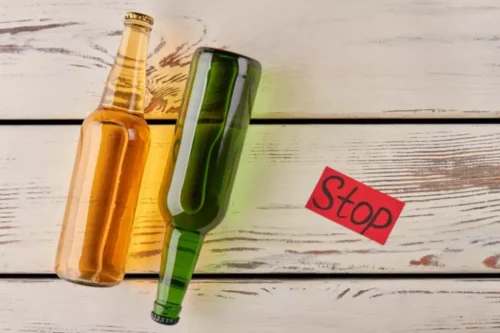
Although a person may intend to abstain from an unwanted behavior, the internal pressure generated by deprivation can be overwhelming and lead to relapse. This phenomenon underscores the importance of understanding the psychological processes involved in self-regulation and developing effective strategies to prevent or mitigate the effect of abstinence violation. Client is taught that overcoming the problem behaviour is not about will power rather it has to do with skills acquisition. Another technique is that the road to abstinence is broken down to smaller achievable targets so that client can easily master the task enhancing self-efficacy. Also, therapists can provide positive feedback of achievements that the client has been able to make in other facets of life6. Another factor abstinence violation effect that may occur is the Problem of Immediate Gratification where the client settles for shorter positive outcomes and does not consider larger long term adverse consequences when they lapse.

AVE and the 12-Step Approach
Your brain may unconsciously crave drugs when you are feeling overwhelmed. The conscious thought may become that the only way you can cope with your current situation is by taking drugs or alcohol. Unconscious cravings may turn into the conscious thought that the drug or alcohol is all you need to cope.
Moving Forward in Recovery After AVE
Self-efficacy is defined as the degree to which an individual feels confident and capable of performing certain behaviour in a specific situational context5. Although many view recovery as a static state that must be achieved, practitioners and individuals working to combat the AVE recognize that recovery is a spectrum, and that lapse and relapse operate on that spectrum. A single lapse does not have to result in a downward spiral of additional lapses and prolonged relapse, and a significant period of relapse does not have to culminate in a lifelong powerlessness over addictive behavior. Having healthy and effective coping strategies in place to anticipate a lapse or relapse can be pivotal, because the likelihood of never again lapsing into an addictive behavior is often quite low. In the multifaceted journey of overcoming addiction and living a healthier life, individuals often encounter a psychological phenomenon known as the abstinence violation effect (AVE). Understanding how AVE impacts the path to overcoming addiction and the commitment to behavioral changes is pivotal.
Is abstinence effective?
According to Marlatt, this cascading effect leads to a relapse that occurs due to a cascading effect that entails several issues. Find out about the abstinence violation effect and what signs to look for in an upcoming relapse. How come we only remember why we wanted to quit after we’ve already reached for the drink? Finally, you convince yourself, “One drink can’t hurt,” and you wave to the waiter. Before you know it, you’re back in the old pattern—hangovers, drunk arguments, the endless obsession around the wine o’clock.
Abstinence violation effect may cause us to feel these way about urges and cravings as well. We feel an urge or encounter a trigger, and suddenly we decide that our attempts at recovery have failed. It doesn’t seem logical that we would still experience cravings when we were only just recently hurt by a relapse.
- Expectancies are the result of both direct and indirect (e.g. perception of the drug from peers and media) experiences3.
- He is a licensed residential home inspector in the state of Florida and relates his unique experience of analyzing a property and/or housing condition to determining any necessary course of action at our facility.
- However, some people may think they have earned a drink or a night of drug use.
- Once relapsed, this strongly held belief increases the likelihood of relapse.
In the case of sexual behavior, it can cause episodes of sexual compulsion after trying to repress those desires. Relapses are unique to each individual, and your experience with them may be different as well. You don’t have to wait until a relapse occurs to seek help if you are concerned that you might be headed for a relapse. There are some common early psychological signs that you might be on the way to a relapse. Mental relapse is characterized by thoughts of using drugs or alcohol again. You may be conflicted between resisting thoughts about drugs and compulsions to use them.

Another possible outcome of a lapse is that the client may manage to abstain and thus continue to go forward in the path of positive change, “prolapse”4. Many researchers define relapse as a process rather than as a discrete event and thus attempt to characterize the factors contributing to relapse3. Ark Behavioral Health offers 100% confidential substance abuse assessment and treatment placement tailored to your individual needs. The Abstinence Violation Effect is when there is any deviation from a desired behavior goal and this deviation is viewed as a total failure. This viewpoint that the deviation is a total failure is then used as a further justification to continue using or doing the addictive behavior.

‘This Time Will Be Different’
Abstinence violation effect fuels our negative cognition, causing us to judge ourselves quite harshly. This is especially true if we are involved in a twelve-step program, as we now realize we must reset our chips. Going to the front of the room to grab a new one-day chip after months or years of sobriety makes us feel like complete failures. We feel ashamed of ourselves, and fear that everybody else must be ashamed of us as well. Abstinence can be considered a decision to avoid behaviors that are risky in and of themselves, like using Sober living house drugs.
Euphoric Recall – “Remember the Good Old Time?”
- Over time, we tend to remember positive experiences more vividly and in greater detail than negative ones.
- The relationship between self-efficacy and relapse is possibly bidirectional, meaning that individuals who are more successful report greater self-efficacy and individuals who have lapsed report lower self-efficacy4.
- John’s goal is to monitor every department to ensure proper policies and procedures are in place and client care is carried out effortlessly.
- Marlatt notes that one of the most important aspects of handling abstinence violation effect is the need to develop our coping mechanisms.
It is possible to rationalize the fact that if you continue to use, you might not experience the same consequences as before. It can be a single instance where someone decides to use the substance again. The importance of understanding the stages of relapse and avoiding them cannot be overstated. A person who has abused a substance for a long time is likely to have a higher tolerance for its effects. As a result, when they are abstinent for a period, they will notice their tolerance has declined, making it possible for them to overdose if they start using again at the same level as before. This bias shapes how we recall past events, often causing us to remember the past in a more favorable light.
- Another possible outcome of a lapse is that the client may manage to abstain and thus continue to go forward in the path of positive change, “prolapse”4.
- When experiencing AVE, individuals tend to internalize their lapse as a personal weakness which diminishes their self esteem.
- You may be conflicted between resisting thoughts about drugs and compulsions to use them.
- In the area of eating, it can lead to compulsive binge eating after periods of food restriction.
- Set realistic expectations for your recovery journey, understanding that progress may not always be linear.

Cori’s key responsibilities include supervising financial operations, and daily financial reporting and account management. Cori’s goal is to ensure all patient’s needs are met in an accurate and timely manner. She is a Certified Recovery Residence Administrator with The Florida Certification Board and licensed Notary Public in the state of Florida. He calls this “urge surfing.” Instead of denying our addictive nature or hating ourselves for it, we learn to keep living in spite of it.